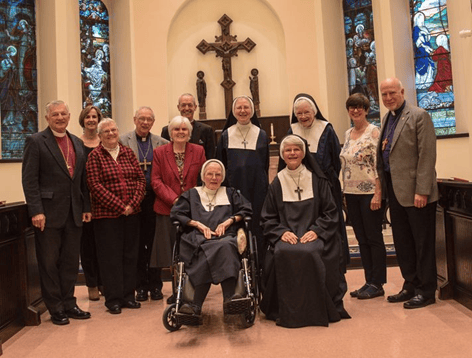ROME — Pope Francis took a swipe Friday at the way the media covers family life, saying it shouldn’t be treated as the terrain for ideological battles, nor should it be presented as an “institution in crisis.”
“The family,” Francis said, “is a community which provides help, which celebrates life and is fruitful.”
According to the pope, the family continues to be a rich human resource, as opposed to a problem.
The pontiff also said that modern technology, such as cellphones or tablets, can either help or hinder interpersonal communication.
They allow contact with distant family or friends, he said, but they also can be a way to avoid listening to others, to evade physical contact, and to fill up every moment with noise rather than allowing for silence and rest.
The pope’s remarks came in his annual message for the Church’s celebration of World Communications Day, which most dioceses mark May 17. Titled “Communicating the family: a privileged place of encounter with the gift of love,” the document was presented in Rome on Friday.
In his message, Francis said that he had decided to talk about the family and communications because the family is the context in which “we first learn how to communicate.”
Francis said that notwithstanding differences of gender and age, which “enrich our living environment,” family members accept one another because of a bond rooted and strengthened by a common language.
The pope also regards the family as a school of forgiveness, since “perfect” families, with no conflicts, don’t exist.
“The family,” said Francis, “is where we keep loving one another despite our limits and sins, thus becomes a school of forgiveness.”
Francis also said that the need to once again learn to talk to one another is a great challenge, not addressed by simply generating and consuming information.
“Information is important, but it’s not enough,” said the pope. “All too often things get simplified, different positions and viewpoints are pitted against one another, and people are invited to take sides, rather than to see things as a whole.”
The pope also shared some reservations on the impact of the media, saying that at times they “tend to present the family as a kind of abstract model which has to be accepted or rejected, defended or attacked, rather than as a living reality.”
When it comes to communication challenges, the pontiff said that families that have children with one or more disabilities can become an incentive to openness, sharing and communication, helping schools, parishes, and associations to become inclusive of everyone.
As with 2014, this year will be heavily centered on the family for the Catholic Church.
In September, Philadelphia will host the World Meeting of Families, which will bring Pope Francis to the United States for the first time.
Later, in October, more than 300 bishops from around the world will gather in Rome for the Synod of Bishops on the Family, a continuation of the assembly that took place last October.
“Families should be seen as a resource rather than as a problem for society,” Francis said near the end of his message. “We are not fighting to defend the past. Rather, with patience and trust, we are working to build a better future for the world in which we live.”
















